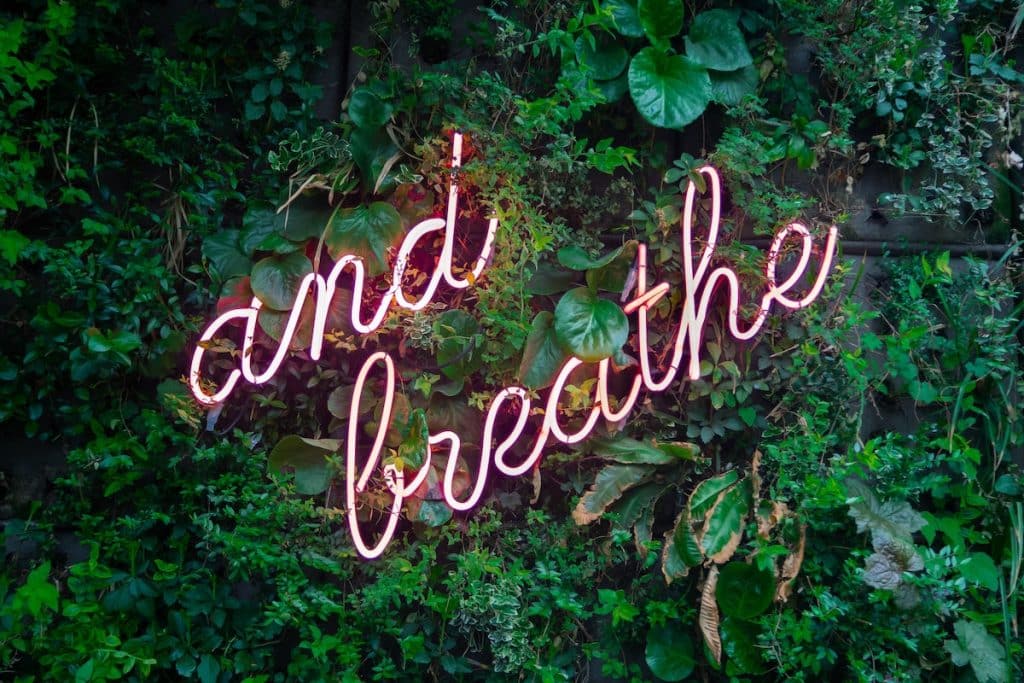Table of Contents
Although they may feel similar when you’re going through them, ‘panic attacks’ and ‘anxiety attacks’ are actually rather different conditions that may affect us when we’re faced with stressors in our lives. What they have in common: neither of them are pleasant to experience and could be an indication that we may need more support in our lives.
In this piece, we break down the key differences between a panic attack and an anxiety attack, so that you know how to better manage any future episodes and what you can do to seek help.
Diagnosis
One difference between a panic attack and an anxiety attack is its ability to be professionally diagnosed.
The Diagnostic and Statistical Manual of Mental Health Disorders (DSM) — which is the authoritative manual used by mental health professionals to diagnose mental health disorders — defines panic attacks as ‘an abrupt surge of intense fear or discomfort reaching a peak within minutes’.
On the other hand, anxiety attacks are not defined in the DSM; although, anxiety and the symptoms of anxiety could be an indication of other mental health conditions, such as generalised anxiety disorders, panic disorders and obsessive-compulsive disorders.
Nevertheless, whether a diagnostic definition exists or not, it doesn’t make the experience of having either a panic attack or an anxiety attack any less real nor painfully intense.
Signs & Symptoms
Panic attacks and anxiety attacks share common physical and emotional signs and symptoms, including:
- Distress
- An accelerated heart rate or heart palpitations
- Chest pain and shortness of breath
- Tightness in your chest
- Sweating and chills or hot flashes
- Uncontrollable shaking and trembling
- Nausea and feeling faint
For panic attacks, you may also feel:
- Detachment from the external world around you
- An intense fear of death and losing control
One way to tell the difference between the two is how suddenly it comes on and how long the symptoms last.
Panic attacks tend to occur all at once, all of a sudden, and may only last for a shorter period of time, up to 30 minutes. On the other hand, anxiety attacks may build up for a longer period of time; you may even have been feeling anxious for a long period of time, up to months, before the anxiety attack occurs.
You may be left feeling exhausted after the attack passes, and it may be hard to get on with the rest of your plans for the day. This is because during the episode, your ‘fight-or-flight’ response triggers the release of adrenaline and cortisol in your body.
In typical situations, these hormones are helpful in helping you cope with stressful situations. However, they may be counter-productive during an anxiety or panic attack as they tend to heighten what you’re feeling and exacerbate the symptoms. Additionally, once the episode ends, and after the spike of hormones goes down, your body crashes from the high and this leaves you feeling drained.
Causes
Panic attacks may occur suddenly, without any obvious trigger factors. On the other hand, anxiety attacks tend to have an underlying factor, such as an external stimulus, that triggers your feelings of anxiety.
Anxiety attacks and (expected) panic attacks may be caused by:
- Stressful social situations, such as before an important presentation or social events
- Relationship issues (regardless of whether it’s romantic or platonic)
- Reminders of traumatic events
- Huge changes in your life, such as a new job
- substance abuse issues
Additionally, having frequent anxiety attacks and long-lasting anxiety may eventually culminate in other mental health conditions, like those mentioned above.
Treatment options
There are several types of treatments available, ranging from seeking professional help to exercises you can do on your own, to managing the symptoms of anxiety and panic attacks.
Talking to a mental health therapist
Therapists are best positioned to help you identify your triggers and equip you with the skills on how to manage your reaction to these triggers, so that you can minimise the occurrences of any panic or anxiety attacks.
Ultimately, speaking to a therapist would help you with managing these episodes most effectively in the long-run, as they can support you in addressing the root cause of your mental health issues and suggest effective strategies to resolve these tensions within yourself.
Taking prescribed medication
In the case of more serious mental health issues, you may be prescribed medication to help with your symptoms, after speaking to a mental health expert. Examples of medication include: antidepressants, anti-anxiety pills and beta-blockers. Your medical advisor would decide what is the best combination and type of medication that can support your journey towards better mental health.
Of course, medication alone is not the only solution — you may need to continue speaking to a mental health expert to learn effective management techniques, to help with what you’re going through.
Making lifestyle changes
Our physical health is intricately linked to our mental health. As such, taking good care of our bodies will lead to better overall mental health. These are a few changes you can make in your life that can have a world of a difference:
- Making sure you get enough quality sleep every night
- Eating a well-balanced diet
- Learning how to practice mindfulness and meditation
- Moving more and spending time in nature regularly
Learning self-soothing strategies
Lastly, if you recognise the signs of an oncoming panic or anxiety attack, you can do certain things to better manage the episode:
- Take slow and long deep breaths: Focus your mind on each inhale and exhale. If you need to center yourself, think of breathing in for four counts and breathing out for six counts.
- Find a place you can rest or sit comfortably in: It can be easier to manage an episode if you’re somewhere quiet or less crowded, as there would be less stimuli around you.
- Try the 3-3-3 rule: Name 3 things that you can see, identify 3 sounds that you can hear, and move or touch 3 things. This can help to ground you in the moment and calm your mind, amidst whatever you’re feeling.
However, if you find that the episodes are affecting your daily life, you may want to consider talking to a mental health expert to get professional advice on treating your anxiety or panic attacks.
It’s an easy process to find a therapist to support you through A Space Between’s client-matching service. Simply fill in the form with what you’re looking for and our team will get in touch with a therapist they think would best be able to support you. Alternatively, you can look through the therapist directory to see if there are any experts that best match your needs.
Either way, know that you are not alone in what you’re experiencing; and that you have a team of experts ready to support you, whenever you want to reach out for assistance.
Sources
- https://www.ncbi.nlm.nih.gov/books/NBK430973/
- https://www.medicalnewstoday.com/articles/321798
- https://www.verywellmind.com/anxiety-attacks-versus-panic-attacks-2584396
- https://www.simplypsychology.org/the-difference-between-panic-attacks-and-anxiety-attacks.html
- https://www.mcleanhospital.org/essential/panic-anxiety-difference
- https://www.healthline.com/health/333-rule-anxiety

An experienced health & wellness writer, I am a story-teller at heart. For me, writing is a way of weaving together the little details that make our existence meaningful and significant into a beautiful, larger story.




